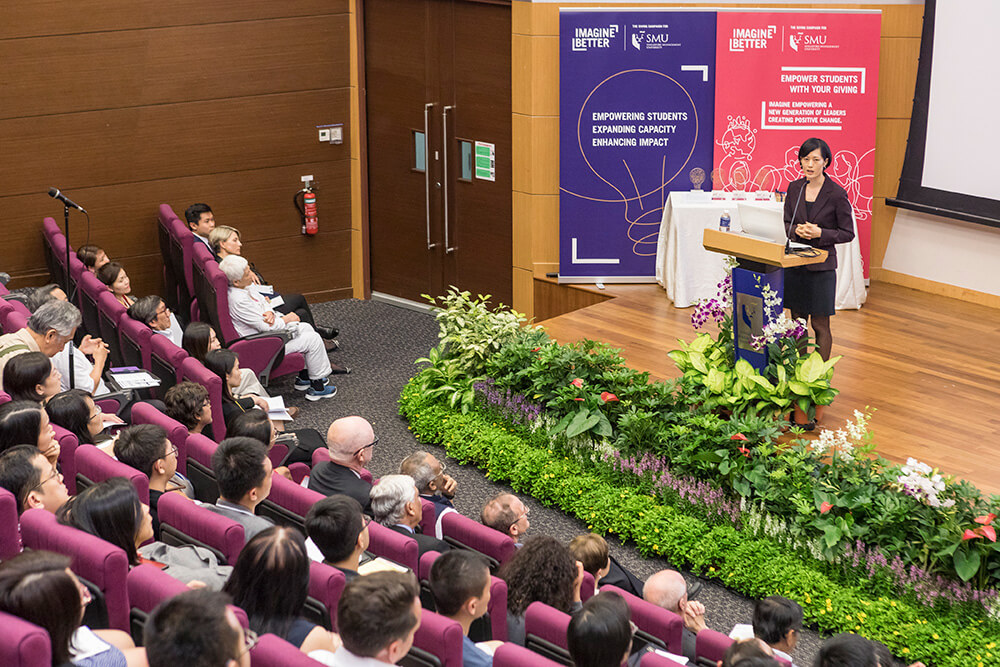By the SMU Social Media Team
Whether on an individual or corporate level, giving back to the community is important. That is what corporate social responsibility (CSR) is all about. And there is a reason why an annual list of top CSR initiatives is compiled: not only can companies improve their reputation, it’s a win-win marketing strategy that also attracts socially-conscious customers. And this scenario is reflective of the ongoing trend of cause-related marketing (or cause marketing).
But while many companies fight for a place in the spotlight, there are a fair number that choose to fly under the radar when it comes to their philanthropic acts. For example, statistics have shown that corporate philanthropy in the United States saw a drop in 2009 due to the recession. But this was contradicted by fundraising consultants who reported that total giving actually increased with many substantial gifts unreported or unacknowledged. Elsewhere, statistics suggest that over half of Chinese companies that make donations do not mention them in their CSR reports.
In the talk, Good Deeds Done in Silence: Legitimacy Management and Stakeholder Conflict by Professor Wang Heli, Janice Bellace Professor of Strategic Management at Singapore Management University’s Lee Kong Chian School of Business, Prof Wang explained the reasons behind why some companies remain silent about their CSR initiatives.

Prof Wang Heli speaking at the inaugural Janice Bellace Professorship Lecture
Why go under the radar?
The main reason behind an organisation going under the radar and not reporting its CSR initiatives is due to the concern of facing objections by the company’s stakeholders.
Drawing on her seven-year research from 2009 to 2015, across 1,530 Chinese firms (privately-owned public firms), Prof Wang examined the phenomena of “quiet giving”; when corporate donations might potentially cause backlash among its stakeholders; and, conversely, when repercussions were less likely to occur.
In her lecture, Prof Wang highlighted the importance of considering the welfare of, and any potential backlash from, primary stakeholders such as employees, creditors and suppliers.
“When the welfare of employees aren’t at their optimal, the potential to get backlash from the company’s stakeholders will be a lot higher. The time and money spent on CSR initiatives will then be seen as unnecessary by company’s stakeholders and this can lead to increased internal displeasures or organisational conflict,” Prof Wang explains.
CSR initiatives, while primarily done with the intention to boost company reputation and maintain a good social relationship with potential customers, may have the reverse effect, especially to creditors and investors, if the company isn’t having a good financial year. Imagine a company parting with a large sum of donation when profits have been running low—not only does this bring a further blow to financial statements, the publicity of it might attract more backlash than benefits.
“One of the major stakeholders concerned with a company’s CSR initiatives is investors. And when a company feels like it might be faced with strong objection from investors, that is when companies choose not to report their CSR activities. Reporting it only reflects badly on the company’s priorities and also brings unwanted attention from investors.”

Prof Wang Heli answer questions from the audience
Considering stakeholder conflict and legitimacy threats
Stakeholder conflict and legitimacy threats occur when the expectations and reactions of organisation stakeholders are not well managed by the company prior to making CSR efforts. Because there is hardly any reason not to disclose a company’s philanthropic efforts, Prof Wang notes that this silent giving is often linked to the possibility of facing legitimacy threats and stakeholder conflict.
“My research generally suggests that managers should better understand potential stakeholder reactions before making decisions about philanthropy and how these efforts should be communicated. Many organisations, in making CSR efforts, neglect the importance of proper communication of these efforts to its stakeholders,” said Prof Wang.
“Managers should also actively monitor relationships with primary stakeholders. Internal legitimacy threats include conformity to organisational rules, stakeholders’ shared beliefs and expressed consent. When an organisation engages in public CSR efforts whilst facing the objection of primary stakeholders, this will bring about stakeholder conflict that can affect [the legitimacy of a] company’s business, internal welfare and politics. At the end of the day, if a company is viable and able to meet stakeholder needs well, then it should engage in and report CSR activities as this would be good for its long-term financial performance.”
At the end of the day, good deeds done in silence are often the result of fear of backlash and internal organisational disruptions. While companies try to balance its CSR with managing stakeholders’ expectations and reactions, Prof Wang points out that CSR initiatives need to align with the company’s financial goals.
“CSR done in silence can sometimes be mistaken for ‘hanky panky’ going on behind closed doors, and this is when legitimacy threats, management and stakeholder conflicts need to be mitigated. Communication and transparency is therefore extremely important when it comes to communicating CSR initiative to stakeholders.”










